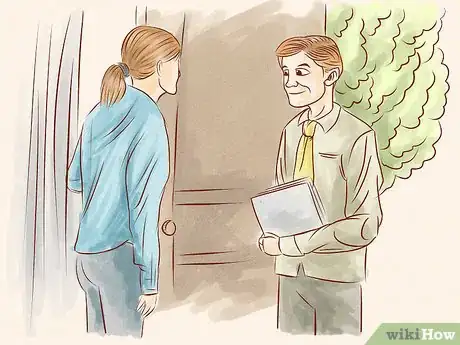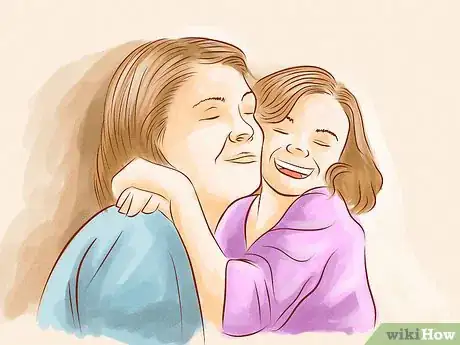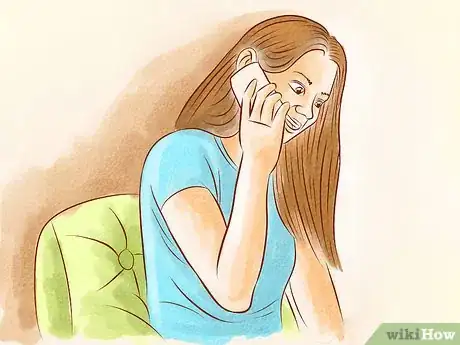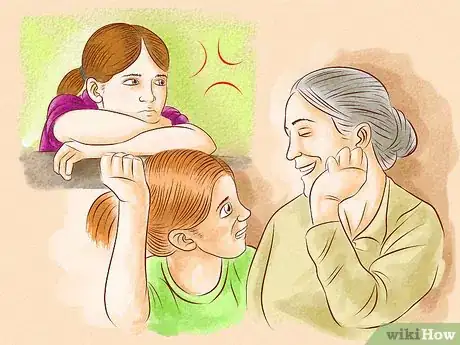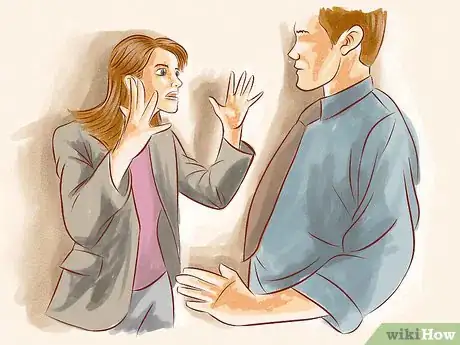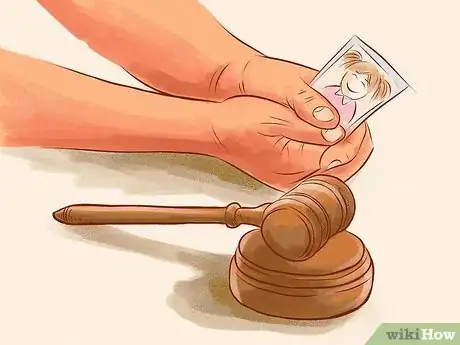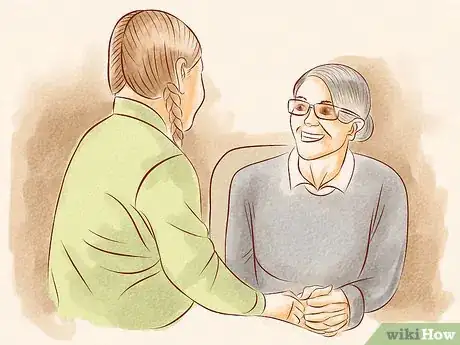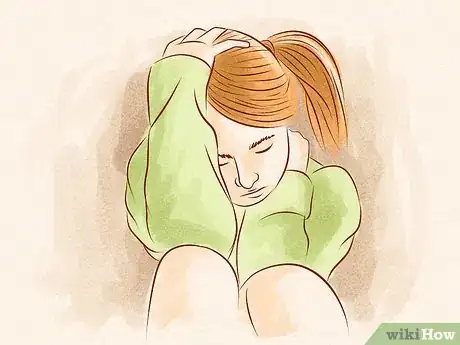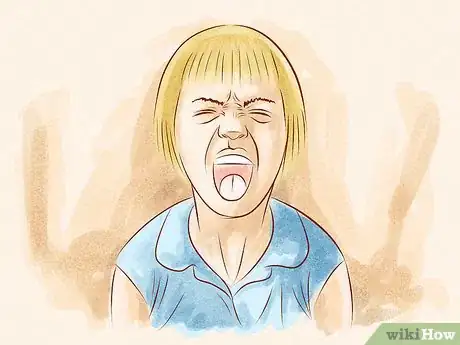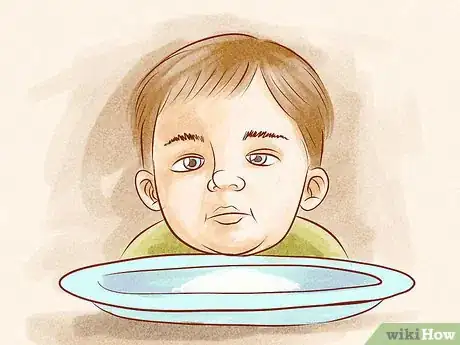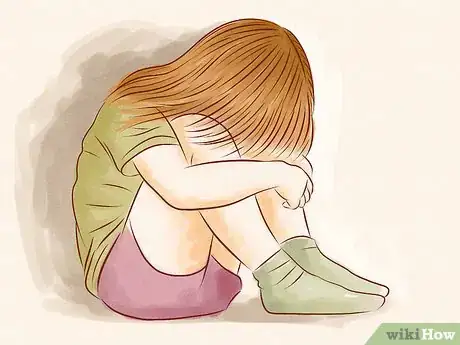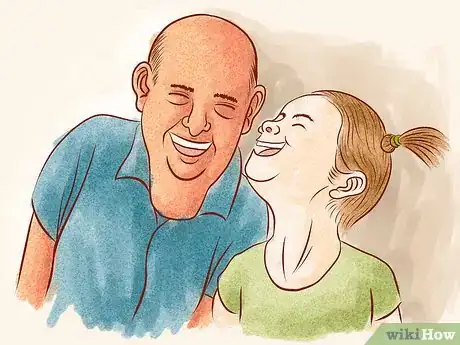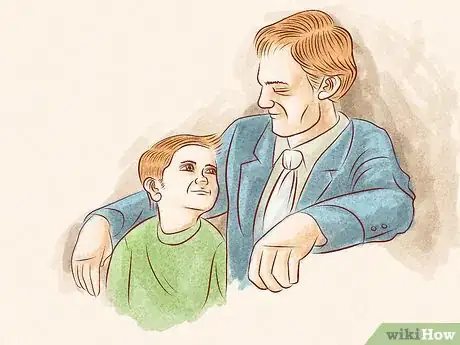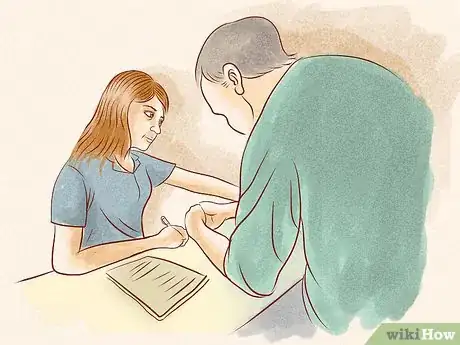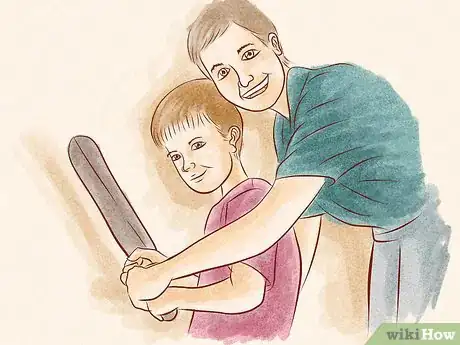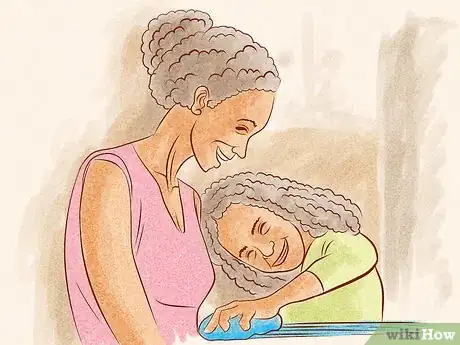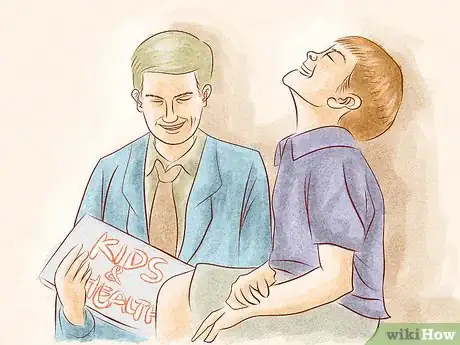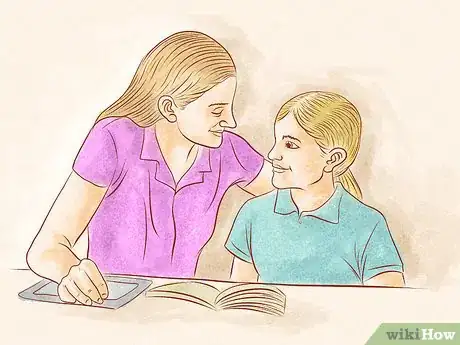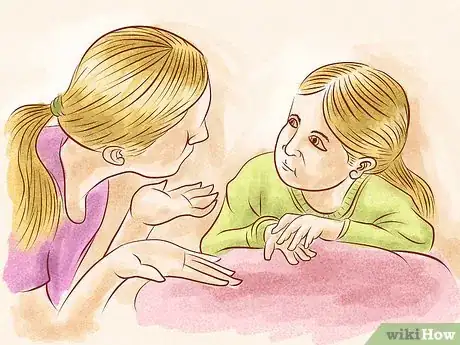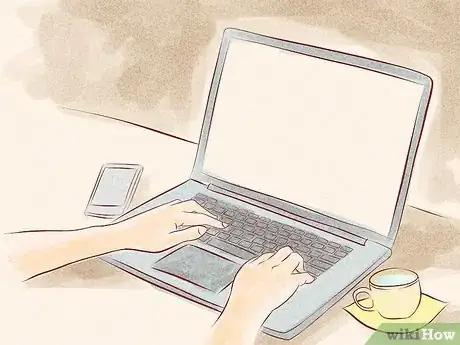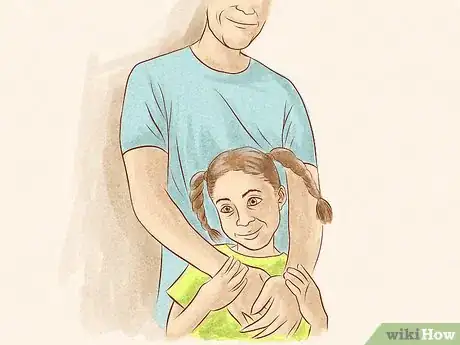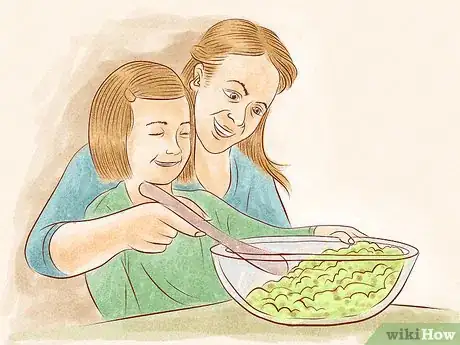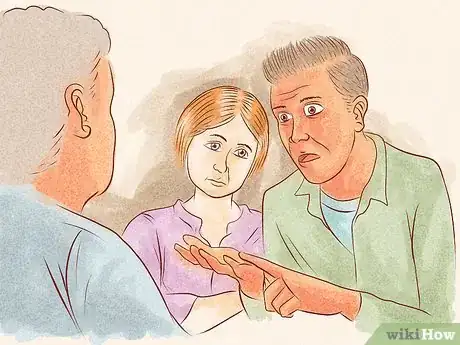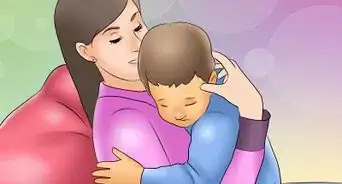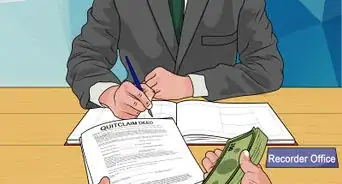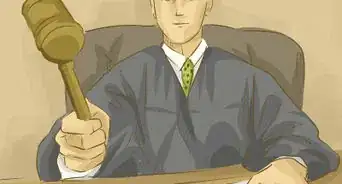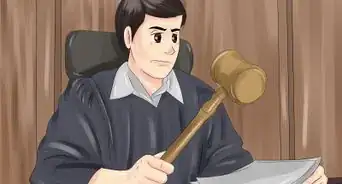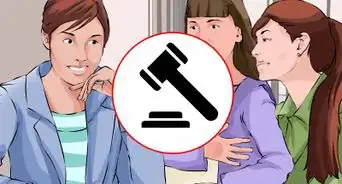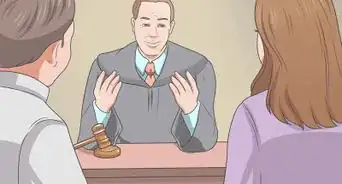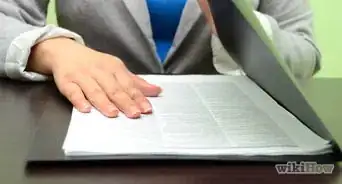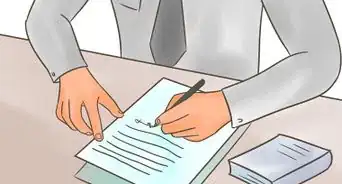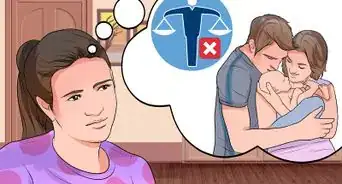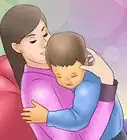This article was co-authored by Clinton M. Sandvick, JD, PhD. Clinton M. Sandvick worked as a civil litigator in California for over 7 years. He received his JD from the University of Wisconsin-Madison in 1998 and his PhD in American History from the University of Oregon in 2013.
There are 11 references cited in this article, which can be found at the bottom of the page.
This article has been viewed 59,797 times.
Child Protective Services (CPS) is an government service that responds to reports of child abuse or neglect, though the name can vary by state. When they stop by your house it is likely that you will be overwhelmed with many conflicting emotions: anger, fear, worry, and even guilt are among the feelings that may race through your mind. When you're faced with an unexpected challenge like the intervention of Child Protective Services, here's how to cope with the ordeal from start to finish.
Steps
Working Through the Introduction
-
1Ask for identification. When someone shows up at your door asking about your kids, you're right to be a little suspicious. True CPS workers will not have a problem with showing you their identification card, and every CPS worker should carry one.[1]
-
2Understand why CPS is visiting. You are of course upset by the fact that your child is involved in an investigation. Nonetheless, it is CPS' responsibility to follow up with every report of neglect or abuse. This policy protects kids in bad situations. If they show up at your door, it means that someone has issued a report about your situation.[2] That doesn't mean that you are automatically going to have your kids taken away. It just means that CPS needs to make sure everything is alright in your home.[3]
- In fact, CPS is in place to help you if you may have trouble in the future. For instance, if you are having trouble making ends meet, they can put you in touch with the right resources so that you don't neglect your child by not being able to provide proper food or shelter.
Advertisement -
3Ask about whom the report concerns. The report may not be directed at you. In fact, it may be another adult in the child's life that CPS is investigating. Any person who is involved in child care can come under investigation, from nurses and doctors to ministers and teachers.
-
4Allow your child to be alone with the workers. The workers will want to interview your child alone. CPS wants to be able to talk to your child without interference and hopefully get the truth from them.
-
5Answer questions thoroughly and respectfully. Of course, you're angry at the thought of someone investigating you or someone in your child's life. However, getting angry and refusing to answer questions will only make the situation worse. In fact, workers are given the right by law to interview you. Refusing could mean they take your kids away right away, rather than using the information you and your child give to assess the situation.
-
6Know what rights CPS has. If it is apparent that your child has been abused or neglected, CPS can call in the police to remove your children. The police will place them in protective custody for 3 days, not counting weekends and holidays. During that time period, a hearing will be scheduled to judge whether the removal was warranted.
- Based on what happens at that hearing, your children may be returned to you. On the other hand, if the judge thinks that you should not currently have access to your children, they will be placed with a relative, if one is available. If not, they will be placed in foster care.
- That doesn't mean your children are gone permanently; it just means that you have to make some serious changes before you get them back.
-
7Go to court. Even if you are not required to go to the hearing, it is important for you to be there. It shows you care about what happens to your child. You will be notified of when the hearing will be. You can also hire a lawyer to represent you at the hearing, especially if you are required to be at the hearing. If you can't afford one, the court should provide one for you.[4]
Understanding What CPS Is Looking For
-
1Know that CPS is looking for signs of physical abuse. First, CPS is making sure that your child is not being physically abused, either by you or another adult in their life. Physical abuse includes any physical harm that comes to your child intentionally, from being hit to being burned or cut.
- It can also include anything that could have seriously injured your child but did not do so at the time, such as shooting a gun in front of them.
- Signs of abuse include bruises, cuts, bite marks, and burns.
- Though spanking is still allowed in most states, it is not okay for parents to leave marks on a child from spanking, including bruises.
-
2Understand CPS is also looking for signs of mental or emotional abuse. This type of abuse is when a child comes to emotional harm because the parent or another adult tells them they are worthless or unloved. Emotional abuse can also result from a child witnessing violent actions.
- Other actions can lead to emotional abuse, too. For instance, locking a child in a closet is considered emotional abuse, as well as alienating the child or trashing something the child values greatly.
- Signs of emotional abuse include a child who isolates themself or is overly active; she also may have speech problems or may not be as developed as she should be physically.
-
3Be aware that CPS is also looking for signs of neglect. Neglect is when a child is not properly cared for. This type of abuse can happen when a family cannot provide adequate food or shelter for a child. It can also happen when a child is left with someone who is not responsible enough to care for the child, which can include someone who is under the influence of drugs or alcohol.
- Your CPS worker will be looking for signs such as extreme hunger, extreme thinness, improper hygiene, and untreated diseases or wounds.
-
4Know that CPS is looking for signs of sexual abuse. Sexual abuse is any sexual activity performed with or on a child. It can include anything from showing pornographic material to a child to engaging in or attempting to engage in any sexual activity with a child.
- Some signs of sexual abuse include difficulty with sitting or walking, ripped or stained underwear, and bruises.
Showing You Support Your Child If She's in Protective Custody
-
1Keep in touch with your child. Though your child is in protective custody, you should stay in contact if you are allowed to do so. That shows you care for your child's well-being and what happens to them.[5]
-
2Plan for your child. One way to show that you are ready for your child to return is to make a plan. Start with what the court objected to. Maybe you were in abusive relationship with a partner or maybe you couldn't afford to feed your child. Show you are changing by getting out of the relationship and joining a support group. Show you can support your child by getting a better job or applying for food stamps if you need to do so.[6]
-
3Follow CPS's instructions. CPS will not leave you on your own to deal with righting your life. They will work with you to make your life better, including helping you make a plan. They'll also put you in touch with resources you need to help put your life back together.[7]
-
4Show up for appointments. You will be required to attend a number of appointments in relation to your child. You also need to show up for any court hearings set up for you or your child. It's important to show CPS that your care about what happens to your child.[8]
Changing Your Home Environment
-
1Give your child the support she needs. All children need praise and love, and you should provide that for your child on a regular basis. Tell them when they're doing a good job at something and remind them often that you love them.
- You can also support your child by making sure they get to school on time. Also, encourage them to have friends and invite them over when possible.
- You can also support them by asking about their day, making sure they do their homework, and helping them get involved in activities they enjoy.
-
2Establish a daily routine for yourself and your children. Your child needs this structure so they know what they can count on from day today. In addition, it helps keep you accountable. For instance, your kids should know that you will be there to pick them up from school or daycare everyday. They should also know what to expect when they get home, such as they need to do homework until dinnertime. Try to establish a routine at night where you get to spend time with your child, whether it's eating dinner together or reading a bedtime story together.
- Be in control of your life. Make sure that you, yourself have a personal routine. It can take a while getting used to having control of both your daily happenings and the happenings of your children, but work on it bit-by-bit, day-by-day.
- Take it step-by-step. For instance, if your goal is to have dinner together every night together, start with having dinner together every night, no matter whether it's fast food or home cooking. Next, move toward cooking for the family. Keep adding parts until you have a steady, healthy environment for your family.
-
3Pay attention to personal hygiene. Part of your daily routine should be instilling good personal hygiene habits in your kids, from helping them brush their teeth to teaching them to wash their hands and bath. In addition, establish a schedule for housecleaning, such as laundry on Fridays and get your kids helping with chores. It will help you keep up with the housework and instill responsibility in them.[9]
-
4Keep you and your kids healthy. Part of this step is eating healthy, but it's also making sure you and your kids have regular checkups. Healthcare is more affordable now because you can qualify for subsidies to help pay for it. Check with your state's healthcare exchange or with the federal government's healthcare exchange if your state doesn't offer one. If you can't afford health insurance, you may qualify for Medicaid; ask your CPS worker to put you in touch with the right people to apply.[10]
- Make sure you're offering your child plenty of fruits and vegetables, lean proteins such as fish and chicken, and whole grains. Dairy is also important for growing bodies.[11]
- Also, encourage exercise in your family. Take walks together, or go to the park. If your kids are inside playing video games, try limiting screen time. Send them outside to play.[12]
-
5Improve your care-taking abilities. Being a parent isn't easy, but you do have resources to help make it better. CPS may require you to take parenting classes, but even if they don't, it may be a good idea to find a free parenting class in your area. If you're not sure where you can find one, ask your CPS worker, as he or she will be happy to help you find one in your area.[13]
- These classes can help you learn how to deal with your children when they get angry or messy. They can also help you build relationships with other parents.
-
6Build a relationship with your child. You have to work on a relationship with your child just like you work on relationships with other people in your life. Make sure you make time to spend with your child, and make sure you follow through with what you say you will do. Your child will only trust you if you give them a reason to, by doing what you say. It also means respecting who they are as a person. That is, give value to their opinions and their being. However, she also must learn to respect you, which you help them do by setting appropriate boundaries.[14]
- One way you show your child you respect them is by listening to them. For instance, if they have a problem, don't just brush it off as silly. It's important to them. Take the time to listen, and help them figure out a solution.[15]
-
7Find a way to support your kids. Finding and keeping a job is not always easy, but for your kids' benefit, you or someone in your household needs to be able to hold down a job. You need to be able to provide financially for your child in one way or another.
-
8Protect your children. One of the keys of keeping your children from abuse is making sure you keep abusive people out of their lives. Make sure the adults in their life are trustworthy enough to be around your kids.
- Just like CPS, you should be watching for signs of abuse in your child, such as bruises, your child suddenly becoming withdrawn, or bloody or torn underwear. If you notice signs of abuse, call in CPS and use their expertise to help figure out where the problem is.[16]
- If your bringing the abusive adult into your child's life by being in abusive relationship, take steps to get out of it. The best way is to cut the person out of your life completely, which is harder than it sounds, especially if the person wants to continue to control you. However, you do have resources available. If you fear for you or child's safety, call the police. If the problem is less immediate, you can call the National Domestic Violence Helpline, 1-800-799-7233 (SAFE), which can put you in touch with resources in your community.[17] CPS workers will also be able to help.
-
9Lead by example. Once you have resolved your issues, it's time to lead by example. Good parents do not do things that they don't want their children to do. If you want your children to be caring, nurturing people, you need to create a caring, nurturing environment for them. If you expect your children to listen when you speak, you need to listen when they speak. They're watching you to learn how to act.
-
10Discuss problems with CPS. CPS has many programs and resources to help you prevent a relapse. It's imperative that you take advantage of the help that they offer you. Not only will this help you, but it will indicate to the case worker that you're stepping up to the plate and wanting to improve yourself for the betterment of your family.
References
- ↑ http://www.dfps.state.tx.us/Child_Protection/About_Child_Protective_Services/parentguide.asp
- ↑ http://www.dcyf.ri.gov/questions/cps_questions.php
- ↑ http://www.dfps.state.tx.us/Child_Protection/About_Child_Protective_Services/parentguide.asp
- ↑ http://www.dfps.state.tx.us/Child_Protection/About_Child_Protective_Services/while_your_child.asp
- ↑ http://www.dfps.state.tx.us/Child_Protection/About_Child_Protective_Services/while_your_child.asp
- ↑ http://www.dfps.state.tx.us/Child_Protection/About_Child_Protective_Services/while_your_child.asp
- ↑ http://www.dfps.state.tx.us/Child_Protection/About_Child_Protective_Services/while_your_child.asp
- ↑ http://www.dfps.state.tx.us/Child_Protection/About_Child_Protective_Services/while_your_child.asp
- ↑ http://centerforparentingeducation.org/library-of-articles/responsibility-and-chores/part-i-benefits-of-chores/
- ↑ https://www.healthcare.gov/
- ↑ http://www.allinahealth.org/mdex/ND7217G.HTM
- ↑ http://www.medicinenet.com/script/main/art.asp?articlekey=47659
- ↑ https://www.dfps.state.tx.us/Child_Protection/About_Child_Protective_Services/parenting.asp
- ↑ http://www.ahaparenting.com/parenting-tools/connection/building-relationship
- ↑ http://www.ahaparenting.com/parenting-tools/connection/building-relationship
- ↑ http://kidshealth.org/parent/positive/talk/child_abuse.html#
- ↑ http://www.helpguide.org/articles/abuse/help-for-abused-and-battered-women.htm#help
